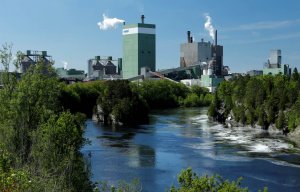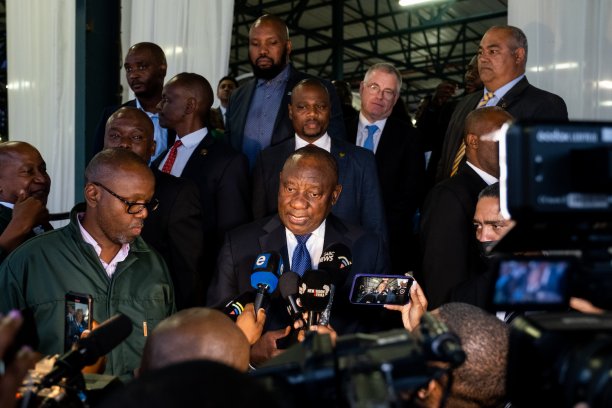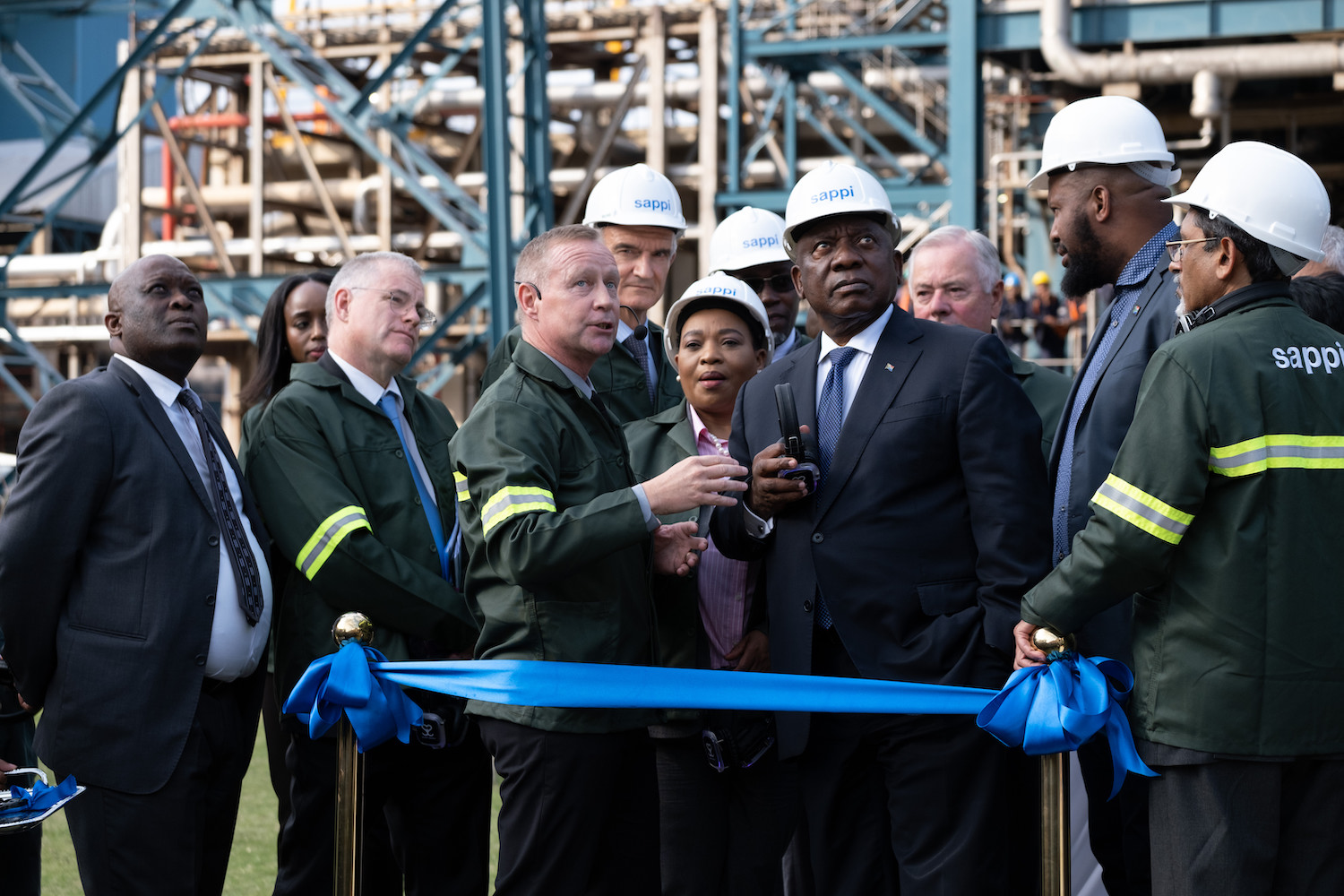
Higg progress for Sappi
Strengthens South Africa’s role as key global supplier of Lyocell, the fibre of the future for sustainable textiles.

16th September 2022
Innovation in Textiles
|
South Africa
A mammoth expansion and environmental upgrade project at the Sappi Saiccor mill was officially opened by the President of South Africa, His Excellency Mr Cyril Ramaphosa, this week n Umkomaas, KwaZulu-Natal. The R7.7billion project was aimed at increasing Sappi’s global competitiveness, delivering shareholder value and driving positive social impact.
Announced at the President’s first annual national investment conference in 2018, the expansion and upgrade entrenches Sappi’s commitment to South Africa, while further strengthening its position as a global player in the growing dissolving pulp (DP) market.
Currently accounting for 17% of the DP market, the expansion project meets customer demand for greater DP production and in particular Lyocell, the fibre of the future, against a backdrop of sustained demand as the world looks to more sustainable alternatives across the textile and fashion value chain. Already Sappi is responsible for almost 60% of global Lyocell production.
Sappi’s commitment to sustainability goes beyond its contribution to the value chains of its clients, rather it has been central to the company’s ethos and strategy since inception. The Saiccor mill, acquired by Sappi in 1989, established Sappi’s global reach into the lucrative international dissolving pulp (DP) markets. Since then, the mill has undergone three expansion projects to keep pace with global demand.
Branded as Verve, almost all of the DP produced at the mill is sold globally into the Viscose Staple Fibres (VSF) markets for use in textiles and clothing for leading brands. The demand for low climate impact materials is accelerating as the textile industry takes action to deliver on the 2030 Science Based Target set by the sector. The Saiccor upgrade project makes an important contribution to supporting the transition to the production of low climate raw materials in the wood based cellulosic sector, making Verve a Fibre of Choice for more sustainable viscose and lyocell fibres.

Commenting on the upgrade, Sappi CEO Steve Binnie said: “It is an honour to have our President here to mark the completion of the expansion and environmental upgrade of the Saiccor Mill. Global demand continues to grow for renewable textiles derived from sustainable wood fibre and it is a great source of pride for us to supply almost 60% of the world’s Lyocell demand, with most coming from this mill in the country of our origin. As a business, Sappi has continued to evolve in line with global trends and this expansion reflects our commitment to enabling not only our own sustainability ambitions, but those of our customers as well through this truly circular product.”
President Ramaphosa was joined in the ceremonial ribbon-cutting ceremony by a delegation of representatives, including Mr Ebrahim Patel, Minister of Trade & Industry and Competition, Ms Nomusa Dube-Ncube, Premier, of KwaZulu-Natal and Mr Siboniso Duma, MEC for Economic Development, Tourism and Environmental Affairs. They were joined by Global Board Chairman of Sappi Limited, Sir Nigel Rudd, Mr Steve Binnie, CEO of Sappi Limited and Mr Alex Thiel, CEO of Sappi Southern Africa.
Commenting on the investment, Sir Nigel Rudd said: “The board would like to congratulate all the Sappi role-players who conceptualised and brought this project to fruition, despite difficult conditions and Covid-19-related interruptions. By using renewable and sustainably sourced wood to produce innovative bio-based products, Sappi continues to have a positive impact on society and the planet by reducing and replacing the need for fossil-based products. In doing this, we are realising our purpose of building a thriving world.”
In line with the company’s ambitious decarbonization goals, recently validated by the SBTi, the investment in new technology to increase production has an additional profound effect on sustainability as the upgrades will result in allowing the Saiccor Mill to use its own wood by-products to minimize its reliance on fossil-based fuels minimizing use of external power. Described as a 'closed-loop system', the application of Best Available Technology (BAT) means fossil fuel emissions will be cut in half, gas emissions will be reduced significantly, water efficiency will be increased and waste to landfill reduced.
Alex Thiel, CEO of Sappi Southern Africa commented: “The installation of the largest sulphite recovery boiler in the world and the conversion of the calcium cooking line to the more sustainable magnesium bisulphite technology, reduces the need for coal-based power generation at the mill, leading to a significant reduction in fossil fuel energy requirements and increasing the mill’s renewable energy usage, additionally realising considerable variable cost savings.”

Business intelligence for the fibre, textiles and apparel industries: technologies, innovations, markets, investments, trade policy, sourcing, strategy...
Find out more